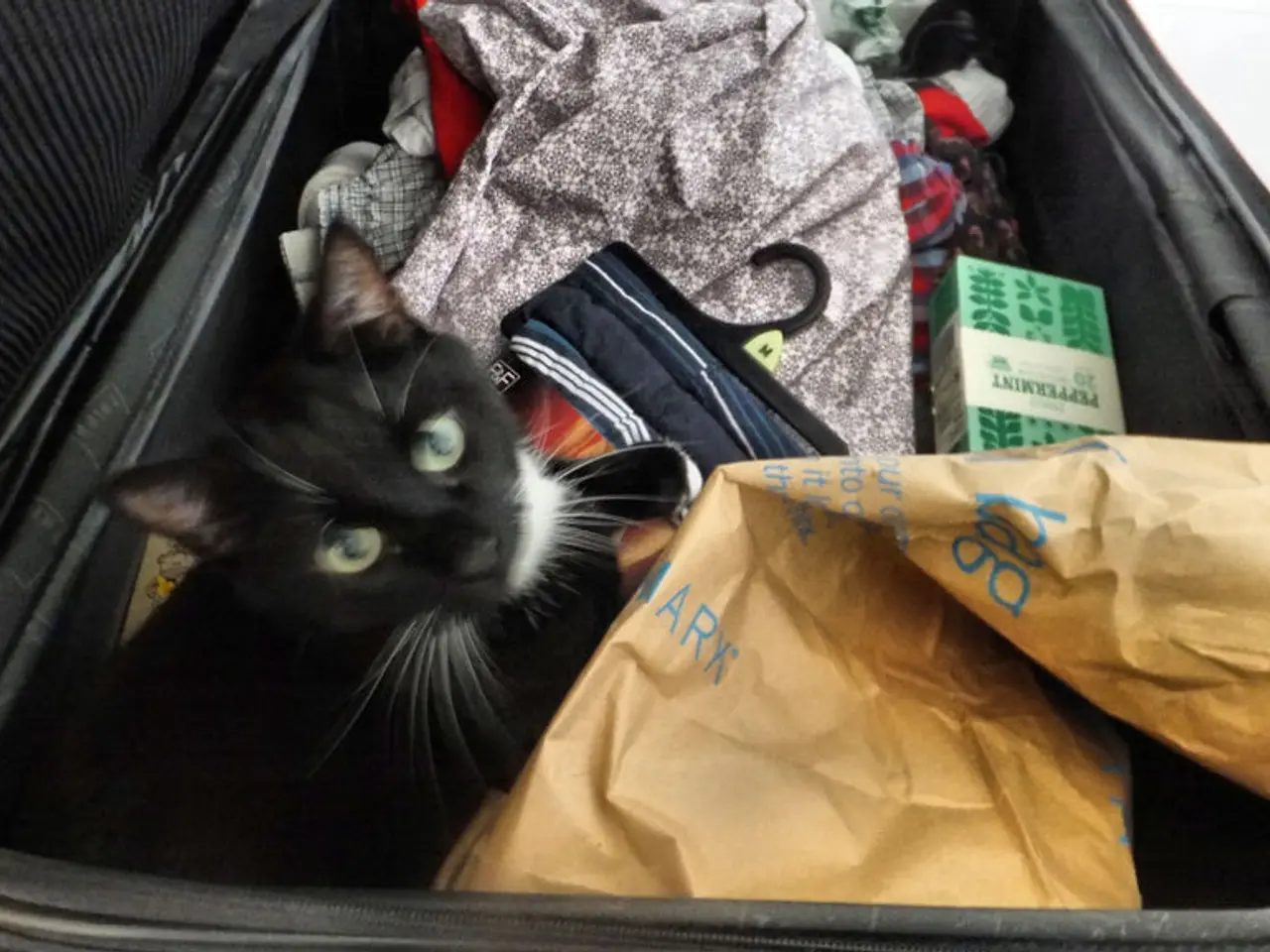Customs in Lesotho manage to dodge Trump's alleged "death sentence"
In a bid to alleviate the economic strain on Lesotho's textile industry, the U.S. government has reduced tariffs on textile imports from the Southern African nation. However, the reduced tariff of 15% remains a significant challenge for Lesotho's exporters, who continue to face stiff competition from countries with lower tariffs [1][2].
The new tariff rate, a significant decrease from the initially proposed 50%, was announced by former U.S. President Donald Trump. This decision, while providing some respite, has failed to address the industry's underlying issues, leading to continued factory closures and job losses [1][3].
The textile sector, Lesotho's largest private employer, employs over 30,000 workers, with about 12,000 working in factories exporting to the U.S. market [1][3]. The initial tariff hike, had it been implemented, would have been catastrophic for the industry, as exemplified by the closure of factories like Tzicc, which supplied sportswear to major U.S. retailers [1][3].
Despite the tariff reduction, Lesotho's textile exporters contend that the 15% rate still puts them at a competitive disadvantage. This disparity threatens up to 12,000 jobs and continues to result in factory closures [1][2].
Prior to the tariff increase, Lesotho benefited from the African Growth and Opportunity Act (AGOA), which allowed duty-free exports to the U.S. The new tariffs, however, have undermined these benefits, prompting Lesotho to seek further U.S. engagement and consider diversifying export markets [2].
The government of Lesotho, led by Finance Minister Retselisitsoe Matlanyane, has expressed relief at the tariff cut but remains concerned about the 15% rate. Matlanyane has appealed to the U.S. to show leniency and fulfill a "moral duty" to accommodate smaller economies [2].
Malebohang Thai, chairman of the textile union Unite, echoes these sentiments, emphasizing the vulnerability of Lesotho as a small, poor country. Thai states that Lesotho is at the mercy of U.S. tariff policies, with the 15% rate still leaving the country uncompetitive [2].
The unemployment crisis in Lesotho is severe, with the declaration of a state of emergency and high unemployment rates among young people, standing at 38% [4]. The textile industry's struggles are further exacerbated by Lesotho's heavy dependence on exports, most of which go to the U.S. market [5].
As negotiations between Lesotho and the U.S. to extend the AGOA program continue, the government and industry leaders remain hopeful for a more favourable outcome. However, they remain cautious, aware of the industry's fragile state and the potential for further job losses [1][2].
[1] BBC News. (2021, August 10). Lesotho textile industry faces continued struggles despite tariff reduction. Retrieved from https://www.bbc.com/news/world-africa-58140568
[2] The Guardian. (2021, August 12). Lesotho's textile industry struggles despite tariff reduction. Retrieved from https://www.theguardian.com/global-development/2021/aug/12/lesothos-textile-industry-struggles-despite-tariff-reduction
[3] Reuters. (2021, August 13). Lesotho's textile industry still faces serious problems despite tariff reduction. Retrieved from https://www.reuters.com/article/us-lesotho-trade-idUSKBN2F426L
[4] The World Bank. (2021). Lesotho - Data. Retrieved from https://data.worldbank.org/country/lesotho
[5] The East African. (2021, August 14). Lesotho's textile industry still heavily dependent on exports to the U.S. Retrieved from https://www.theeastafrican.co.ke/business/Lesothos-textile-industry-still-heavily-dependent-on-exports-to-the-US/4674204-5645450-15jzq4nz/index.html
- The government of Lesotho, through Finance Minister Retselisitsoe Matlanyane, has appealed to the U.S. to show leniency and lower the tariff rate on textile imports from Lesotho, as the current 15% rate, despite the reduction, continues to put Lesotho's textile exporters at a competitive disadvantage and threatens up to 12,000 jobs.
- Malebohang Thai, chairman of the textile union Unite, calls on the U.S. to recognize Lesotho's vulnerability as a small, poor country and implement a lower tariff rate, arguing that the current 15% rate makes Lesotho's textile industry uncompetitive and prolongs the unemployment crisis in the country, particularly among young people, where the unemployment rate stands at 38%.




